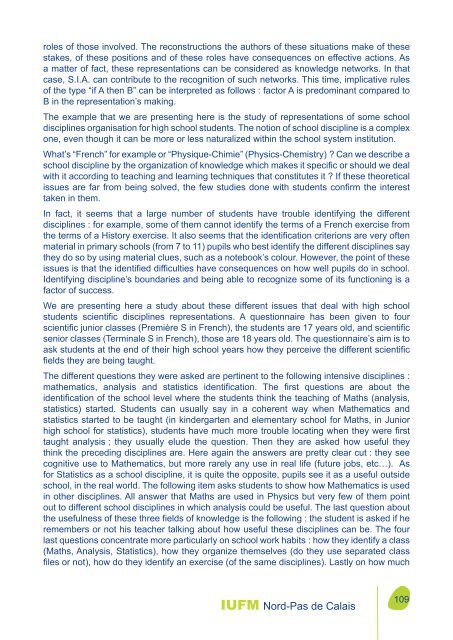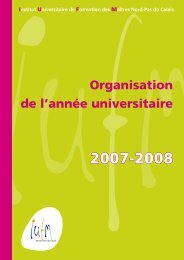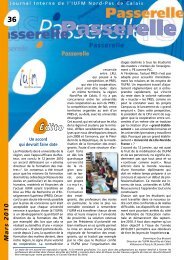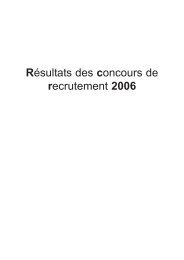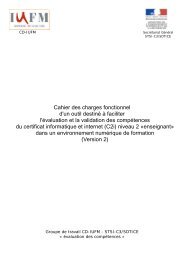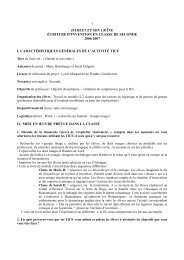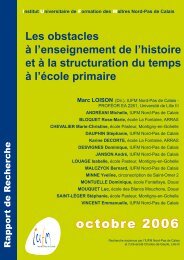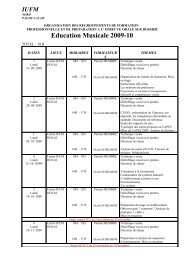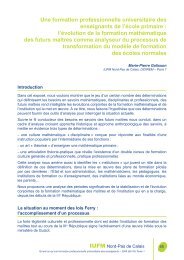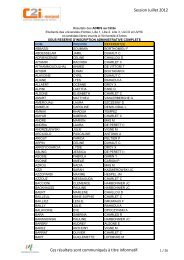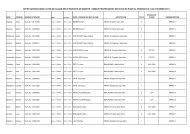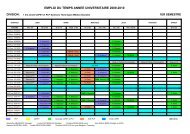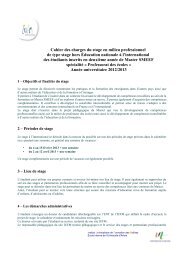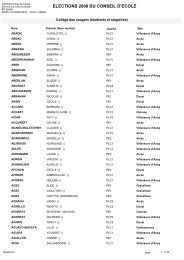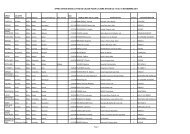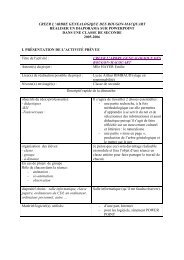Create successful ePaper yourself
Turn your PDF publications into a flip-book with our unique Google optimized e-Paper software.
o<strong>le</strong>s of those involved. The reconstructions the authors of these situations make of these<br />
stakes, of these positions and of these ro<strong>le</strong>s have consequences on effective actions. As<br />
a matter of fact, these representations can be considered as know<strong>le</strong>dge networks. In that<br />
case, S.I.A. can contribute to the recognition of such networks. This time, implicative ru<strong>le</strong>s<br />
of the type “if A then B” can be interpreted as follows : factor A is predominant compared to<br />
B in the representation’s making.<br />
The examp<strong>le</strong> that we are presenting here is the study of representations of some school<br />
disciplines organisation for high school students. The notion of school discipline is a comp<strong>le</strong>x<br />
one, even though it can be more or <strong>le</strong>ss naturalized within the school system institution.<br />
What’s “French” for examp<strong>le</strong> or “Physique-Chimie” (Physics-Chemistry) ? Can we describe a<br />
school discipline by the organization of know<strong>le</strong>dge which makes it specific or should we deal<br />
with it according to teaching and <strong>le</strong>arning techniques that constitutes it ? If these theoretical<br />
issues are far from being solved, the few studies done with students confirm the interest<br />
taken in them.<br />
In fact, it seems that a large number of students have troub<strong>le</strong> identifying the different<br />
disciplines : for examp<strong>le</strong>, some of them cannot identify the terms of a French exercise from<br />
the terms of a History exercise. It also seems that the identification criterions are very often<br />
material in primary schools (from 7 to 11) pupils who best identify the different disciplines say<br />
they do so by using material clues, such as a notebook’s colour. However, the point of these<br />
issues is that the identified difficulties have consequences on how well pupils do in school.<br />
Identifying discipline’s boundaries and being ab<strong>le</strong> to recognize some of its functioning is a<br />
factor of success.<br />
We are presenting here a study about these different issues that deal with high school<br />
students scientific disciplines representations. A questionnaire has been given to four<br />
scientific junior classes (Première S in French), the students are 17 years old, and scientific<br />
senior classes (Termina<strong>le</strong> S in French), those are 18 years old. The questionnaire’s aim is to<br />
ask students at the end of their high school years how they perceive the different scientific<br />
fields they are being taught.<br />
The different questions they were asked are pertinent to the following intensive disciplines :<br />
mathematics, analysis and statistics identification. The first questions are about the<br />
identification of the school <strong>le</strong>vel where the students think the teaching of Maths (analysis,<br />
statistics) started. Students can usually say in a coherent way when Mathematics and<br />
statistics started to be taught (in kindergarten and e<strong>le</strong>mentary school for Maths, in Junior<br />
high school for statistics), students have much more troub<strong>le</strong> locating when they were first<br />
taught analysis ; they usually elude the question. Then they are asked how useful they<br />
think the preceding disciplines are. Here again the answers are pretty c<strong>le</strong>ar cut : they see<br />
cognitive use to Mathematics, but more rarely any use in real life (future jobs, etc…). As<br />
for Statistics as a school discipline, it is quite the opposite, pupils see it as a useful outside<br />
school, in the real world. The following item asks students to show how Mathematics is used<br />
in other disciplines. All answer that Maths are used in Physics but very few of them point<br />
out to different school disciplines in which analysis could be useful. The last question about<br />
the usefulness of these three fields of know<strong>le</strong>dge is the following : the student is asked if he<br />
remembers or not his teacher talking about how useful these disciplines can be. The four<br />
last questions concentrate more particularly on school work habits : how they identify a class<br />
(Maths, Analysis, Statistics), how they organize themselves (do they use separated class<br />
fi<strong>le</strong>s or not), how do they identify an exercise (of the same disciplines). Lastly on how much<br />
<strong>IUFM</strong> Nord-Pas de Calais<br />
109


